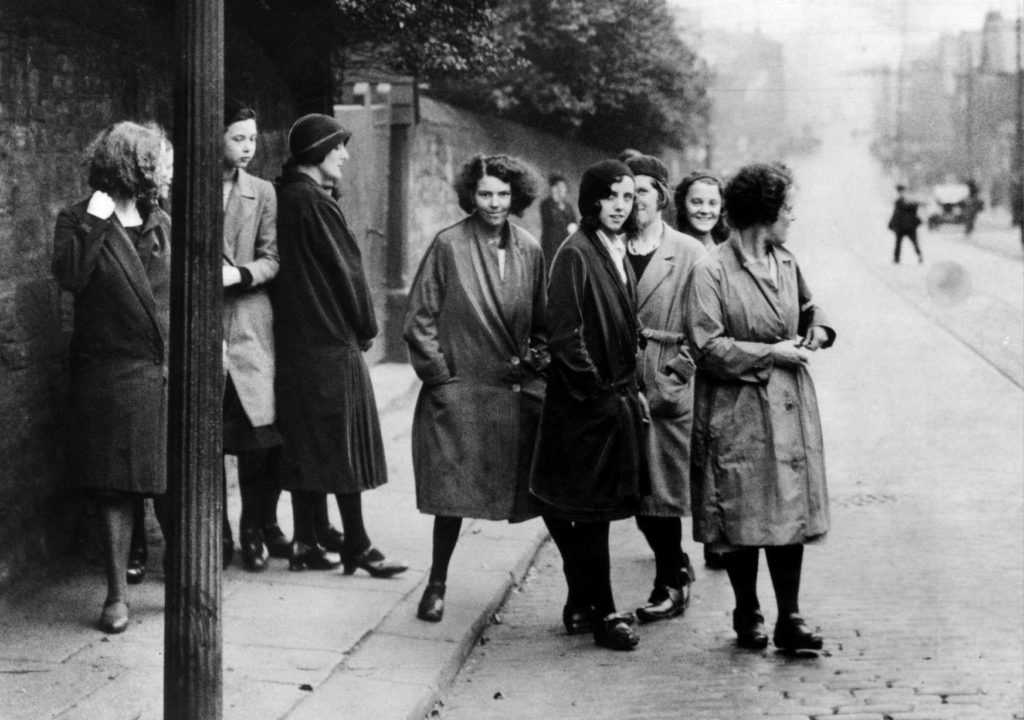...or, Why Landlordism is Inherently Exploititative
By Tom Lavin (@tomlavin13)
Introduction: Good Landlord/Bad Landlord
Nominally ‘progressive’ housing charities, NGOs, politicians and newspapers are all quick to distinguish between ‘good’ and ‘bad’ landlords. 1 When they want to add a bit of drama, they enjoy describing the bad landlords as ‘rogue’.
Whilst it is necessary to identify subcategories within landlordism (clearly some landlords behave better relative to others) it is a mistake to describe the relatively better forms of landlordism as in any way ‘good’. To do so is to take renters for idiots.
An analogy: it is preferable to have £5 stolen from you than £50, but you would not describe the theft of £5 as being a ‘good theft’.
The Cotton Mills of Victorian Manchester
When Karl Marx and Fredrich Engels wrote about the exploitation of Mancunians working in Victorian cotton mills, they argued the relationship between mill owner and worker was inherently exploitative:
- When an employee worked in the mill, they produced something of economic value to the mill owner. This had to be the case, as a rule. If the worker did not do so, there would be no commercial sense in the owner employing them and paying their wages. To give a simplified example, a weaver in a mill might transform a bag of raw cotton worth £1 into cloth worth £3, creating £2 of economic value for their employer.
- For the employment of the worker to make commercial sense to the mill owner, the wages they paid the worker had to be less than the actual economic value of the employee’s work as a rule. Were this not the case, the owner would not make any money themselves as the economic value created by the worker (£2 in our simplified example above) would be immediately cancelled out by payment of £2 to the worker in wages!
Marx and Engels argued the fact there had to be a gap between the economic value of what the worker produced and the wages they received proved the workers were being exploited by the mill owners; their wages did not reflect the true value of their work.

The myth of the ‘good cotton mill owner’
Fast forward 150 years, and Mancunian children are taken on school-trips to a former cotton mill situated by Manchester Airport known as Quarry Bank Mill. The visits serve as a sort of civic rite of passage for young residents of a city once nicknamed ‘Cottonopolis’.
On guided-tours children are told, whilst there were many cruel cotton mill owners, the owners at Quarry Bank were some of the better employers of the era, providing half-decent workers’ cottages and an education for the child-labourers they employed (things their peers did not always do).
If we assume the tour guides’ claims are true and the owners were significantly better employers than their cotton mill owning peers, Marx and Engels would still maintain the arrangement the Quarry Bank owners had with their workers was inherently exploitative:
By paying wages that were less than the value of the labour being provided by the workers, they were ripping their workers off. To return to our theft analogy, they may have been stealing less than their fellow mill owners, but they were committing theft nonetheless.
The myth of the ‘good landlord’
Imagine the landlord equivalent of the romanticised Quarry Bank Mill owners, the idealised ‘good landlord’.
You are probably imagining a landlord who is prompt and attentive when there is disrepair in your home but at other times gives you ‘quiet enjoyment’ of the property. They do not charge a large sum for a deposit at the start of your tenancy and take a fair, common-sense view on the concept of ‘reasonable wear and tear’ at the end of it. Although they need to turn a profit for the arrangement to be commercially viable to them, they charge rent that is below the market rate for your area.
Even in this idealised, very rarely seen in the wild, scenario, the relationship between landlord and renter is still inherently exploitative if we apply reasoning similar to Marx and Engels:
If the landlord charged only what it cost them to supply the property to the renter, they would not make any money, making the arrangement a waste of time from their perspective. Therefore, for the arrangement to be commercially viable for the Landlord, they must as a rule charge the renter, a level of rent that is above the actual costs they incur in supplying the property. 2
Defences of entrepreneurialism
Marx and Engel’s views on mill owners have not gone unchallenged over the past 150 years.
Defenders of mill owners argue that, by being the people who had the initial idea to open a cotton mill, by taking a risk investing their money in machinery needed to weave cotton (when there was no guarantee doing so would be commercially successful) and by completing the administrative task of running the mill, they were justified in taking for themselves some of the economic value created by the employee’s hard work.
Each reader will have their own opinion on how much credence should be given to these arguments,3 if you are feeling unsympathetic towards mill owners, try instead to picture an entrepreneur you have some degree of admiration for.
It is perhaps hard not to respect the proprietors of the first curry houses on Rusholme’s Wilmslow Road, (setting up long before it was known as the ‘Curry Mile’).4
Immigrants, new to rainy 1950s Manchester, an unfamiliar and sadly frequently racist place, risked everything to open restaurants, gambling that their fellow Asians, newly employed in textile mills across Greater Manchester and beyond, would travel to visit for a taste of home, and that the existing local population would take a liking to food from the other side of the world.
When you think of the risk and stress endured and the skill involved in running such operations, combined with all the cumulative joy the restaurants brought to the city, few would seek to deny the restaurant owners some financial reward for their contribution to society.
But the things that make us respect these curry house pioneers cannot easily be applied to what landlords do. In fact, when we try to apply the defences of entrepreneurialism to landlordism, it is remarkable how comprehensively they fall flat.

Applying the defences of entrepreneurialism to landlordism
No equivalent skill or ingenuity is required to buy housing, the only thing the prospective landlord needs is money or access to finance. To notice that there is a demand for shelter during a housing crisis requires about the same level of observation as noticing there is a demand amongst humans for drinking water.
A landlord might argue they possess a skill in predicting in advance when a residential area will ‘gentrify’ and that they use their skill to invest shrewdly in such areas to bring themselves greater profit margins. Such a ‘skill’ is of no benefit to society, so is unclear why it warrants financial reward.
Minimal bravery is required to invest in a buy to let property. In the unlikely event a landlord fails to find some desperate soul to rent their purchase to, they still have a capital asset that is likely to have appreciated in value.
The administrative burden of being a landlord is minimal when compared with running a cotton mill or a curry house. Arranging viewings, having to occasionally call a plumber, supplying annual gas safety certificates etc. are not arduous tasks. Despite this, many landlords either fail to fulfil their small role adequately5 or sub-contract to a letting agent (who is usually effectively paid for by the renter through further inflated rent).
The idea landlords might bring happiness or ‘spark joy’ for renters in the way restaurant proprietors might do for their patrons is of course risible, as every renter living in HMO Magnolia-land will be quick to attest.
Can an alternate ‘pragmatic’ defence of mill owners be applied to landlordism?
Mill owners might accept that the relationship they had with their workers was inherently exploitative, but argue any unfairness was ultimately justified by the productive nature of the arrangement and its results.
It is indisputable that mill owners’ employment of their workers saw raw cotton transformed into cloth on an industrial scale, that this was something society benefited from, and that the purchases of the cloth enabled the workers to receive a wage that was sufficient for (at least some of them) to survive. Without this arrangement, however unfair, how else would the workers have survived?
Whatever merits we believe this defence may or may not have in relation to cotton mills, it is difficult to see how it could be applied to the landlord and renter relationship. Landlordism is just not productive in the same way that a cotton mill is.
An indignant landlord might at this stage point to the millions of people in the UK living rented accommodation as proof of landlordism’s productive output, but to do so would be a sleight of hand.
By the time a landlord takes ownership of a home, the home already exists.6 The workers involved in the hard work of physical construction give society its housing stock and the renter their shelter, not the landlord.
Landlords are closer to Hand Sanitizer Hoarders than Curry House Pioneers
At the beginning of the COVID-19 crisis, opportunists bulk purchased hand sanitizer before re-selling it at extortionate prices. This led to widespread condemnation, even Boris Johnson denounced their ‘profiteering’.7
These profiteers did not manufacture their own hand sanitizer, no additional hand sanitizer was made available to society because of their actions, they just took ownership of a limited resource leaving desperate people at their mercy.
The parallels with landlordism should cause landlords moral discomfort.
In fact, in certain respects, the behaviour of landlords is worse. The hand sanitizer profiteer eventually transfers ownership of the commodity they have hoarded, the landlord withholds the right of ownership from the renter, preferring to profiteer month by month for as long as they please. There is also something particularly repugnant about profiteering from those who are almost certainly poorer than you are.
What is the actual cost to the landlord of supplying a property to a renter?
Given the traditional landlord battle-cry “I’ve got my own bills to pay too don’t you know!” readers may be surprised to learn nearly half (45%) of landlords own their renters’ homes outright i.e. without a mortgage.8
For these landlords, the ongoing cost of supplying a property to a renter is limited to the costs incurred keeping the property in a good state of repair and fit for human habitation.
In comparison to average rents these costs are negligible.
According to research by the insurer ‘More than’, the national average expenditure necessary on a three-bedroom home for repair work, maintenance and buildings insurance is only £73.17 per month.9
In comparison, the average rent on a three-bedroom home in Manchester in 2018 was £895.00 per month,10 more than 10 times the average ongoing cost to the mortgage-free landlord in supplying the property.
To put it another way, such a landlord’s yearly costs would be covered by payment of their first months’ rent (with change to spare), with every payment thereafter pure profit.

But what about costs incurred by the landlord in acquiring the property?
In acquiring their asset, some landlords will have had the good fortune to have become owners of a property at no cost to themselves e.g. following an inheritance from a wealthy parent. Most, however, will have had to either invest savings or take out a mortgage to pay for their asset, or some combination of the two.
To the landlords who took out a mortgage and had renters living in the property for the lifetime of the mortgage, we can say with accuracy; the renters living in the property were the ones who paid off the mortgage, not you.11 It is therefore unjustifiable, once mortgage free, to use the original cost of purchasing the asset as grounds for charging rent above the ongoing cost of supplying the property. The original purchase price is a cost previous tenants have already borne. Despite this, readers will note landlords never issue their tenants with significant rent reductions once the mortgage is paid off!
But what of landlords who have used hard-won savings (we will be charitable and assume they have not just acquired wealth through inheritance!) in order to purchase their asset, or landlords who have an outstanding mortgage that they must make payments towards each month. Should the original cost of investing to purchase their asset and/or their outstanding mortgage payments be factors in a fair calculation when setting rent for their tenants?
“No taxation without representation!”
If landlords want someone else, i.e. renters, to cover the costs of acquiring ownership of their assets, it does not seem unreasonable to suggest, as a basic point of fairness, ownership of the assets are transferred to the ones doing the actual paying in exchange.
Under the current system landlords seek to have their cake and eat it at the renter’s expense.
When America was a colony of the UK, Americans fighting for independence highlighted a basic unfairness (that they were obliged to send taxes to the Crown but were not allowed to send representatives to Parliament to have a say how those taxes should be spent) with the rallying cry “No taxation without representation!”.
Renters could issue a similar, albeit less catchy, slogan; “No paying landlords’ costs of acquisition without transference of ownership!”
Landlordism should be actively discouraged
Under no duress,12 the landlord takes it upon themselves to behave like a hand sanitizer hoarder. They acquire ownership of a pre-existing home, simultaneously preventing anyone who might want to live in the property themselves from doing so, in the hope their ownership will enable them to make money out of those in need.
That they encumber themselves with mortgage debt or use up their savings to achieve this morally dubious aspiration, is their choice for which they need to take personal responsibility.
When landlords choose to behave in this way, society has no obligation to indulge or humour their behaviour. On the contrary, we have a moral obligation to deter such anti-social acts.
As Danny Dorling writes:
“If people hoarded food on the basis its value was sure to go up when others began to starve and would pay anything, we would stop their hoarding. But hoarding is now happening with shelter in the most unequal and affluent parts of the world”13
It is unlawful for landlords to profit from re-sale of water, why is re-sale of shelter any different?
Sometimes, because of the layout of the plumbing in certain properties, usually old houses that have been sub-divided into flats, it is impossible for water companies to provide individual water bills for each household.
When this is the case, the landlord of the building will receive one water bill for the entire property and then invoice each household for their portion of the bill based on a formula set out in law that forbids the landlord from making a profit.14
It is unlawful for landlords to make a profit from the re-sale of water as it is recognised it would be morally abhorrent to profiteer from something so necessary to human survival when the water company has already done so.
Given shelter’s own importance to human survival and given the builders and everyone else involved in construction have already been paid, there is no obvious reason why re-sale of shelter should be treated differently.
Our housing stock has already been paid for. That we continue to pay for it again and again in perpetuity is a form of collective madness
Consider the housing in your neighbourhood; the workers who dug the clay that made the bricks have been paid for their work, as have the builders who laid the bricks, as have the loggers who felled the trees and the carpenters who constructed the floors, as have the workers who quarried the slate and the roofers who laid the tiles. Everyone involved in the physical creation of the housing stock of the nation has been paid.15
Yet as renters we are, under threat of eviction and homelessness, forced to spend an unforgiveable amount of our limited time on earth working to earn wages to pay and repay for perpetuity for this housing stock that has already been paid for!16
Picture a renter who has lived in their home for 30 years. Over this time they will pay rent each month at a rate their landlord calculates is necessary to cover;
- The Landlord’s mortgage payments, deposit, stamp duty etc.
- The cost of keeping the property in a good state of repair and fit for human habitation.
- The Landlord’s profit– i.e. the amount on top of the cost of supplying the property that makes the arrangement worthwhile to the landlord. 17
After 25 years, the renter has paid off their landlord’s mortgage (of course, their rent is not reduced to reflect this landmark!). Several years later, the landlord retires and decides to sell the property to a new landlord. The new landlord takes out a mortgage to purchase their asset, and it is now the role of the renter to toil away to pay this off for them.
On and on this merry go round will go until housing is taken out of the hands of commercial landlords.
Breaking away from landlordism and moving towards a ‘People’s rented sector’
If we broke away from landlordism, our housing costs would be limited to the cost of keeping our homes in a good state of repair and fit for human habitation, alongside a small contribution to the costs of continually replenishing the nation’s housing stock.18
For most renters this would represent a life changing reduction in housing costs.19 We would then all have the choice to either use the money saved on things that actually bring us happiness or cut our working hours giving us more leisure time to do the things that bring us happiness. And we would do so living without fear of homelessness. The overall benefit to society would be immense.
Landlords currently own our homes, but this can be changed. The renters’ rights movement ought to see transference from landlords to common ownership as our ultimate goal, what Joe Bilsborough terms a ‘People’s Rental Sector’.20
Under current laws, to bring our homes into common ownership landlords would need to be compensated but the cost would be nowhere near as daunting as you might first think.21
The alternative to taking ownership away from landlords is to keep renters chained to an exploitative relationship for perpetuity. If we believe landlordism should end at some point, why shouldn’t it be in our lifetimes?
When Nye Bevan founded the NHS in the aftermath of the second world war, he remarked he was only able to do so and placate his detractors by ‘stuffing their mouths with gold’.
The post- COVID-19 global recession will offer fertile ground for radical change similar to 1945. If we want to free people from housing costs the way Bevan freed people from healthcare costs, a similarly pragmatic attitude towards compensating profiteers in order to break free from their control may be required. Just like the NHS, doing so would be worth every penny.
Tom Lavin is a member of ACORN Liverpool’s organising committee and a Justice First Fellow working in housing law at Merseyside Law Centre. He previously worked for Shelter as a housing adviser.
Acknowledgements: Many thanks to Alex Hendrikson, Hamish Reid and Isaac Rose who took the time to read an early draft and all gave very helpful advice.
8 June 2020
[1] https://blog.shelter.org.uk/2014/06/good-landlords/ is a particularly craven example.
[2] https://anotherangryvoice.blogspot.com/2020/05/why-you-should-absolutely-detest.html?m=1 This argument is also well made here.
[3] As an aside I would suggest anyone sympathising with the mill owners investigates how it came to be that a few individuals at that time had the wealth available to become cotton mill owners whilst everyone else had nothing!
[4] http://www.bbc.co.uk/manchester/content/articles/2009/05/12/curry_mile_history_feature.shtml There is a nice write-up of the history here.
[5] https://assets.publishing.service.gov.uk/government/uploads/system/uploads/attachment_data/file/817630/EHS_2017-18_PRS_Report.pdf 14% of Privately rented homes have Category 1 HHSRS Hazards
[6] There are a small minority of occasions where this is not the case e.g. a landlord who purchases a property at auction that is unfit for human habitation and carries out work to make it habitable could arguably be said to have brought a home into existence. For such landlords, the subsequent section does not apply.
[7] https://www.ft.com/content/6af426bc-bfa3-4acb-86e0-c72eb0333e7e
[8] https://england.shelter.org.uk/__data/assets/pdf_file/0004/1236820/Landlord_survey_18_Feb_publish.pdf
[9] https://www.morethan.com/home-insurance/news/how-much-does-it-cost-run-home/ (£17.76 on buildings insurance and £55.41 on house maintenance).
[10] https://www.manchestereveningnews.co.uk/news/greater-manchester-news/how-much-average-rent-costs-15591274
[11] As outlined above, for an arrangement to be commercially viable for a landlord, they must as a rule charge the renter a level of rent that is above the actual cost they incur in supplying the property. The mortgage, deposit, stamp duty etc. are all costs incurred in supplying the property so are inputted into the rent.
[12] An argument could be made that there is a level of economic duress, that under the current system landlords are forced to make such investments and exploit renters to give themselves a pension. There may be a degree of truth to this (one way or another capitalism makes monsters of us all, how many readers can say with confidence the clothes they have on were not made in a sweatshop in conditions similar to a Victorian cotton mill?) but this is an argument to improve the state pension, not an argument for landlordism.
[13] Dorling D, All that is Solid: The Great Housing Disaster (Allen Lane 2014)
[14] https://www.ofwat.gov.uk/households/your-water-bill/waterresale/
[15] William Sorenson uses similar imagery in this excellent article: https://www.thesocialreview.co.uk/2019/01/23/abolish-landlords/
[16] https://www.theguardian.com/society/2017/sep/20/millennials-spend-three-times-more-of-income-on-housing-than-grandparents
[17] See 8
[18] This could either be done by a small surcharge applied to rent or, more equitably as part of a progressive taxation system.
[19] See 9
[20] http://www.gmhousingaction.com/resetting-the-balance/
[21] https://medium.com/@martin_farley/how-a-transition-from-private-to-public-rental-could-save-uk-renters-and-taxpayers-50bn-per-year-ece57b818c26





